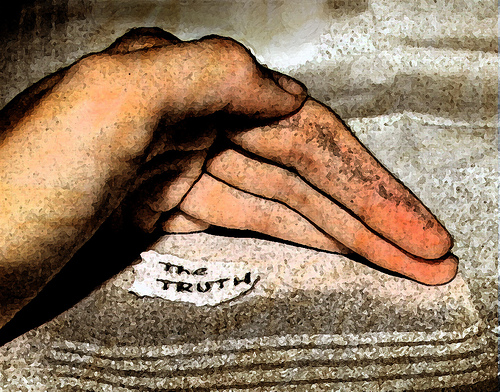Wealthy Families, Corporate-Backed Foundations Behind Push for School Vouchers
Submitted by Anne Landman on
 The sudden, rapid push for school voucher programs nationwide is not due to any public outcry or grassroots uprising for these programs. For decades these programs have been a hard-sell with the American public. Instead, a small group of wealthy individuals and corporate-backed, private foundations have been behind these efforts to divert public taxpayer dollars to private and religious schools. Among them is the son of the billionaire co-founder of Amway, Richard "Dick" DeVos, Sr., who advocates dropping the term "public schools" in favor of the term "government schools" and who has poured millions of dollars into groups that advocate "school choice," the term often used to refer to voucher programs. Dick DeVos's wife, Betsy DeVos, who is also the sister of Erik Prince of Xe, the private mercenary firm formerly known as Blackwater, has been even more aggressive than her husband at promoting voucher programs. She launched the pro-voucher group "All Children Matter" in 2003, which spent $7.6 million in its first year alone to promote the adoption of state voucher programs. Betsy DeVos also founded The American Federation for Children in 2010. A PAC of the same name spent $820,000 on Wisconsin state legislative races to elect pro-voucher candidates. The Alliance for School Choice is another DeVos-funded group that promotes vouchers. The Walton Family Foundation (of Wal-Mart fame) has also given millions to push school voucher programs. These are just a small sample of the private, corporate-backed forces working to undermine public schools.
The sudden, rapid push for school voucher programs nationwide is not due to any public outcry or grassroots uprising for these programs. For decades these programs have been a hard-sell with the American public. Instead, a small group of wealthy individuals and corporate-backed, private foundations have been behind these efforts to divert public taxpayer dollars to private and religious schools. Among them is the son of the billionaire co-founder of Amway, Richard "Dick" DeVos, Sr., who advocates dropping the term "public schools" in favor of the term "government schools" and who has poured millions of dollars into groups that advocate "school choice," the term often used to refer to voucher programs. Dick DeVos's wife, Betsy DeVos, who is also the sister of Erik Prince of Xe, the private mercenary firm formerly known as Blackwater, has been even more aggressive than her husband at promoting voucher programs. She launched the pro-voucher group "All Children Matter" in 2003, which spent $7.6 million in its first year alone to promote the adoption of state voucher programs. Betsy DeVos also founded The American Federation for Children in 2010. A PAC of the same name spent $820,000 on Wisconsin state legislative races to elect pro-voucher candidates. The Alliance for School Choice is another DeVos-funded group that promotes vouchers. The Walton Family Foundation (of Wal-Mart fame) has also given millions to push school voucher programs. These are just a small sample of the private, corporate-backed forces working to undermine public schools.

 The reaction of health insurers to the Obama administration's requirement that they start justifying rate increases of 10 percent or more was quick and predictable: "Not fair!"
The reaction of health insurers to the Obama administration's requirement that they start justifying rate increases of 10 percent or more was quick and predictable: "Not fair!" I turned 43 a couple of weeks after I joined
I turned 43 a couple of weeks after I joined  Scholastic, Inc., a leading publisher and distributor of children's books and teaching materials, agreed to stop selling a coal industry-sponsored curriculum that it has distributed to 66,000 fourth grade teachers since 2009. The curriculum was sponsored by the
Scholastic, Inc., a leading publisher and distributor of children's books and teaching materials, agreed to stop selling a coal industry-sponsored curriculum that it has distributed to 66,000 fourth grade teachers since 2009. The curriculum was sponsored by the